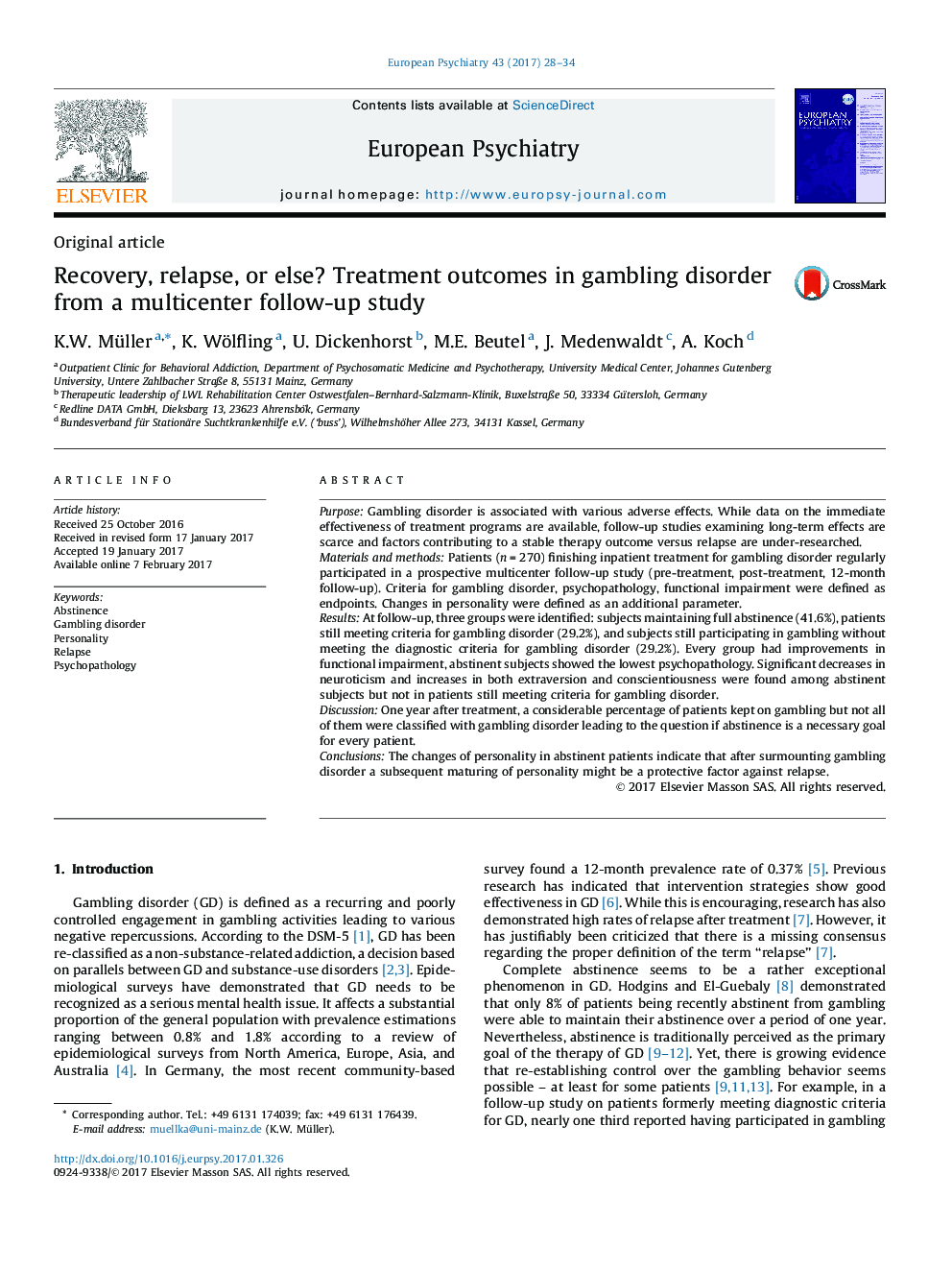| Article ID | Journal | Published Year | Pages | File Type |
|---|---|---|---|---|
| 5721419 | European Psychiatry | 2017 | 7 Pages |
PurposeGambling disorder is associated with various adverse effects. While data on the immediate effectiveness of treatment programs are available, follow-up studies examining long-term effects are scarce and factors contributing to a stable therapy outcome versus relapse are under-researched.Materials and methodsPatients (n = 270) finishing inpatient treatment for gambling disorder regularly participated in a prospective multicenter follow-up study (pre-treatment, post-treatment, 12-month follow-up). Criteria for gambling disorder, psychopathology, functional impairment were defined as endpoints. Changes in personality were defined as an additional parameter.ResultsAt follow-up, three groups were identified: subjects maintaining full abstinence (41.6%), patients still meeting criteria for gambling disorder (29.2%), and subjects still participating in gambling without meeting the diagnostic criteria for gambling disorder (29.2%). Every group had improvements in functional impairment, abstinent subjects showed the lowest psychopathology. Significant decreases in neuroticism and increases in both extraversion and conscientiousness were found among abstinent subjects but not in patients still meeting criteria for gambling disorder.DiscussionOne year after treatment, a considerable percentage of patients kept on gambling but not all of them were classified with gambling disorder leading to the question if abstinence is a necessary goal for every patient.ConclusionsThe changes of personality in abstinent patients indicate that after surmounting gambling disorder a subsequent maturing of personality might be a protective factor against relapse.
